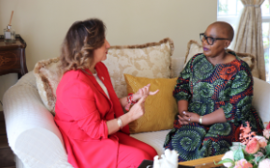Norris downplays momentum talk ahead of tricky season finale
Lando Norris has won three of the last four races, but the McLaren Formula One driver said ahead of the Dutch Grand Prix he was no great believer in momentum and expected the second half of the season to be 'tricky' and challenging.








